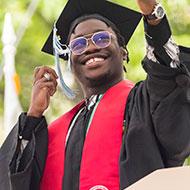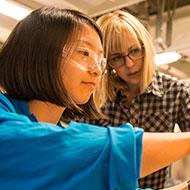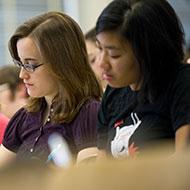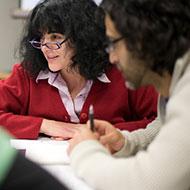Principal Investigator
Prof. Robert Miller, Electrical Engineering and Computer Science; Prof. John Leonard, Mechanical Engineering; Dr. Julie Greenberg, Institute for Medical Eng. and Science; Teo Grace, Institute for Medical Eng. and Science; William Li, Electrical Engineering and Computer Science
Fund:
d'Arbeloff Fund
Funding Period:
AY2016
Department/Lab/Center:
Electrical Engineering and Computer Science
Principles and Practice of Assistive Technology (PPAT) is a 12-unit course in which student teams work closely with a person with a disability (their “client”) in the Cambridge/Boston area to design and engineer technologies that help them accomplish a specific task. It was founded in 2011 by Professor Seth Teller (19642014), who taught it for the past three years. This fall, we are very proud to be continuing PPAT with 35 students and 11 community projects. PPAT offers a unique undergraduate educational experience with three learning goals: by the end of the course, students will 1) learn principles and practice of user-centered design through the lens of assistive technology, 2) acquire project management skills in a team-based project working with a real client, and 3) become equipped as advocates by understanding the realities and challenges of people with disabilities. Just as importantly, by serving people with disabilities in the local community, the course will have tangible community impacts and bring together MIT faculty, students, and staff who have a strong interest in assistive technology and public service. We seek to carry PPAT’s goals and vision forward for many years to come. Our goals in this proposal are ambitious, but we are energized to achieve them. We will extend the course into a truly multidepartment effort with faculty leadership and significant, meaningful faculty-student interactions in the classroom. By funding a lecturer in Fall 2015, the d’Arbeloff Fund for Excellence in Education will enable us to develop richer faculty-student interactions and offer a way to transition PPAT to classroom faculty leadership in 2016 and beyond.





